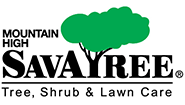Watering:
For the best grass health it is best to water more heavily, but less often. Deep watering and letting the soil dry forces deeper roots and makes the lawn more drought resistant. During the hottest times of summer a lawn needs about 2.5 inches of water per week.
Mow at the right height:
Keep mowing height at 2.5 to 3 inches. Taller grass shades the soil, which reduces water evaporation, leads to deeper roots, and prevents weed seeds from germinating. Mow often enough so you’re never removing more than one-third of the leaf height during any one cutting.
Sharpen your mower blade:
A dull mower blade rips grass instead of cutting it. This makes ragged wounds, brown edges, and opens the tip up for disease organisms. By late summer many mower blades have gone dull. A good rule of thumb is to sharpen blades after every 10 to 12 hours of mowing.
 Get weeds under control:
Get weeds under control:
Weeds steal nutrients and moisture from the lawn while smothering out desirable grass. Keeping weeds under control is one key to keeping a lawn healthy and happy. A weed free lawn is also far more enjoyable to walk on in bare feet.
Keep an eye open for damaging insects:
Several insects lay eggs in the spring and early summer. These eggs hatch into grubs in mid- to late summer. At this point they feed on lawn crowns and roots causing damage to turf. Insect damage is normally uneven and gives the lawn a ‘splotchy’ appearance, or damages areas close to sidewalks and driveways.
 Clean up pet waste quickly:
Clean up pet waste quickly:
Pet waste can cause major damage. If you see dying grass due to your dog’s urination, flush the area with water to dilute the
urine in soil. Hand aeration of damaged areas can also help to move the material out of the root zones of grass better. The quicker solid waste is picked up the less time it has to create a burn spot.
Avoid taking vehicles onto the grass:
Driving or parking on the lawn is bad for the grass in several ways. First and foremost, it leads to soil compaction. Compacted soil prevents moisture penetration and limits the amount of air available for the roots of the grass. Driving over grass also damages the crowns of the grass. Finally, oil, gas, cleaning solvents, and road grime are all toxic to grass.
 Keep lawn free of debris and toys:
Keep lawn free of debris and toys:
One of the main reasons for a lawn is to enjoy it during the summer. This leads to toys, lawn chairs, grills, and a host of other debris being put onto the lawn. Leaving these items on the lawn for long periods of time can cause heat damage, or even the death of turf areas if the sun heats up items lying on the lawn too much.
